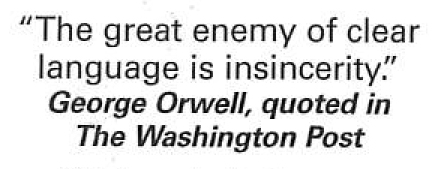Think about socially, positive, powerful people throughout time. What words were/are in their speech?
- Should (and nefarious nephews)
- Why questions (and sneaky siblings)
- Yes / No questions (and angling aunties)
The above family are mighty thieves of your ability to be a powerful and peaceful force in the lives of people you touch.
Difficult? Frustrating? Laborious? Strange sounding for quite a while? It may be that some or all of those are your experience. The choice, in the moment, hourly, daily, weekly, and onward, is to become more intentional, powerful, and peaceful. The below alterations will add finesse, effectiveness, and respect to your own actions, as well as others.
To start, focusing on Should, Why, and Yes/No will offer the most bang for your buck. After that tier is solidly in hand, begin to focus on Tier Two words that create intention, power, and compassion, followed by Tier Three.
Tier Two
|
|
Tier Three
|
I feel like . . . (thought) |
I feel like you . . . I feel like people are ganging up on me. I feel as if I can’t do it. |
Expressing a feeling as a simile works: “I feel like a tornado.” Also works when one is indicating one’s SENSE on a matter (substitute “sense” for “like” for a while to train yourself – “My sense is that . . .”). If substituting “think” for “feel” makes sense, you’re likely expressing a thought instead of a feeling. |
|
Expressing a thought using the word feel softens one’s words, inviting others to take them less seriously, as after all, it is just a feeling. Are you in touch with the feelings behind your thought? Feel is also used when one is expressing an opinion, yet not wanting to take full ownership for that opinion. Remove the “like” and translate into an NVC phrase. |
||
|
Still |
Still, he shouldn’t have done it. But (implied still), it shouldn’t be like that. I still haven’t done that! |
Can be used powerfully in arguments when the intention is: “also consider the follow point.” Although edgy, can be used to peacefully mean “continue,” as in: “I still support . . .” |
|
Still often precedes a judgment. It rarely follows empathic listening. Used to cut off discussion, rather than expand and elucidate it. Can infer impatience, “We still aren’t there yet?” |
||
|
I guess
|
I guess so. I guess that’s true.
|
“I guess” works when truly intending to venture a guess. |
|
I guess limits the conviction/power of one’s words. Also used to indicate an action with resignation, “Okay, I guess I’ll do it.” |
||
|
Soon Very Really |
I’ll get that to you very soon Soon enough You’re really clever! |
“Soon” and “very” are unspecific, and often one person desires more clarity than the other(s). “Really” can add direction and emphasis to what follows, yet does so with similar vagueness as to degree. |
|
Yeah |
Yeah, I guess so. Yeah, okay. Yeah, well I do this . . .
|
Adds resignation or hesitation to one’s words, usually without clearly expressing the source/nature of it. When speaking about something passionately and positively, yeah does not have the right ring to it. Also used colloquially to infer exuberance or simple agreement: see next point. |
|
Like You know Stuff Kind of |
I like really need it. Like, it was crazy! You know, like, when that kinda thing happens. Stuff like that, kind of. Yeah, kind of. |
When indicating a preference, someone/thing you like, it is appropriate. As a “four-ish” letter word, like offers questionable descriptiveness and depth. Like as an “unnecessary” piece of speech (and its cousins), can build camaraderie/sameness in certain crowds. Initially, it can be helpful, but not necessary, for building rapport. |
|
Otherwise, it marks an immaturity in one’s speech that can be extrapolated to more than speech alone. |
“Be the change you wish to see in the world.”
Gandhi
What we’re all striving for is authenticity, a spirit-to-spirit connection.
Oprah Winfrey
To speak and to speak well are two things. A fool may talk, but a wise man speaks.
Ben Jonson
If you wouldn’t write it and sign it, don’t say it.
Earl Wilson
Verbosity leads to unclear, inarticulate things.
Dan Qua
People who changed the world through their speech
|
Mahatma Gandhi |
Nelson Mandela |
Albert Einstein |

